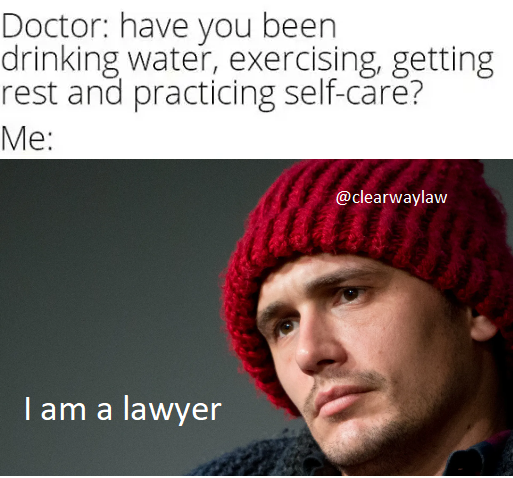If you were recently hurt in an accident caused by a negligent party in Georgia USA, you might consider filing a lawsuit for compensation. But how hard is it to win a personal injury lawsuit in Georgia, and what exactly makes it so difficult?
Certain things can make winning a personal injury case more or less challenging in Georgia. Failing to file a lawsuit quickly and within the statute of limitations might make recovery almost impossible for personal injury victims. Not seeking medical attention immediately after an accident or having gaps in medical treatment might also lower your chances of success.
A lack of evidence or understanding of Georgia’s modified comparative fault laws can make recovery more difficult for victims as well. Without legal representation, winning a personal injury lawsuit in Georgia can be hard, which is why it is always important for victims to seek help from experienced attorneys. With the right help from an injury attorney, winning a lawsuit in Georgia doesn’t have to be hard.

What Can Make Winning a Personal Injury Lawsuit Hard in Georgia?
Winning a personal injury lawsuit in Georgia, or any state for that matter, can be hard without the necessary help. The level of difficulty might increase when victims wait to pursue compensation and don’t file for some time after an accident. Having gaps in your medical treatment, access to evidence and a lack of understanding of Georgia’s comparative fault laws might all impact the success of your case. Generally, winning a personal injury case in Georgia becomes easier when victims have skilled attorneys by their side.
Statute of Limitations
When you file a personal injury lawsuit in Georgia matters. Typically, it’s best for victims to seek help from a personal injury lawyer immediately after an accident in Georgia. The longer you wait to sue, the more it may seem that your injuries are not serious and do not require compensation. The statute of limitations for personal injury lawsuits in Georgia is two years.
The deadline for filing changes, depending on where you live. For example, surrounding states like Alabama also have a statute of limitations of two years for personal injury cases. Georgia’s neighbour, Tennessee, only allows victims to sue within one year of an accident. Learning the statute of limitations in your state is important, as failing to file before the deadline may bar you from recovery.
Although you technically have two years to sue a negligent party in Georgia, bringing a case well before the deadline is best. Doing so can improve your chances of success in your personal injury lawsuit.
Gaps in Medical Treatment
When victims file personal injury lawsuits in Georgia, they do so to recover compensation for damages, namely medical expenses. When proving fault in a personal injury lawsuit, supporting your claims with medical evidence is crucial. Having gaps in your medical treatment, or delaying seeking medical treatment after an accident, might make your case harder to win.
Because of that, it is important to seek medical attention immediately after you are injured because of a negligent party in Georgia. Doing so creates documentation of your injuries and their likely cause. From there, seek continuous medical treatment. Keep all visits with doctors and specialists and follow the requirements of your treatment plan. Avoiding gaps in medical treatment shows your commitment to healing and reinforces the impact a negligent party’s actions have had on your life.
Available Evidence
Winning a personal injury lawsuit becomes more difficult when victims do not have substantial evidence. Typical evidence used in a personal injury case in Georgia includes eyewitness statements, expert testimony, security camera footage, photographs, and medical records, among other forms of proof. Investigating an accident and uncovering evidence requires skill and dedication, which is why victims are typically most successful when they seek help from experienced attorneys.
Collecting evidence immediately after an accident is important, especially if you plan on suing a negligent party for compensation in a personal injury lawsuit in Georgia USA. The less evidence of fault you have, the more difficult it may be for you to win your case.
Obtaining witness statements after a car accident is crucial to determine fault and ensuring a fair settlement. Witness statements can provide valuable evidence to support your case and help determine liability.
Comparative Fault
One thing that can have a major impact on personal injury cases in Georgia is the state’s modified comparative fault laws. In Georgia, victims who share a percentage of fault for their injuries may see their damages reduced proportionally to their liability. While you won’t be barred from recovery as long as you share less than 50% of the fault for your injuries, you may have difficulty claiming the total compensation you deserve.
Many states, like Tennessee, have similar rules regarding comparative negligence, while other states, like Alabama, bar recovery entirely for victims who are found to have contributed to their injuries. If you are unaware of Georgia’s modified comparative fault laws, winning your personal injury lawsuit and recovering the compensation you need to heal may become more difficult.

Seeking Assistance
When victims in Georgia choose not to seek help from skilled attorneys, winning a personal injury case will likely become much harder. Filing a lawsuit is a complex legal process that requires lengthy and confusing procedures. During a case, victims must meet the burden of proof, provide proof of damages, and tick many other boxes to be successful.
Without a lawyer in your corner, your chances of success might lower dramatically, leaving you without proper compensation after an accident in Georgia. To prevent that from happening, victims in need of recovery should seek help from personal injury lawyers in Georgia.
We hope you found this guide on how to file an injury lawsuit in Georgia USA useful.

